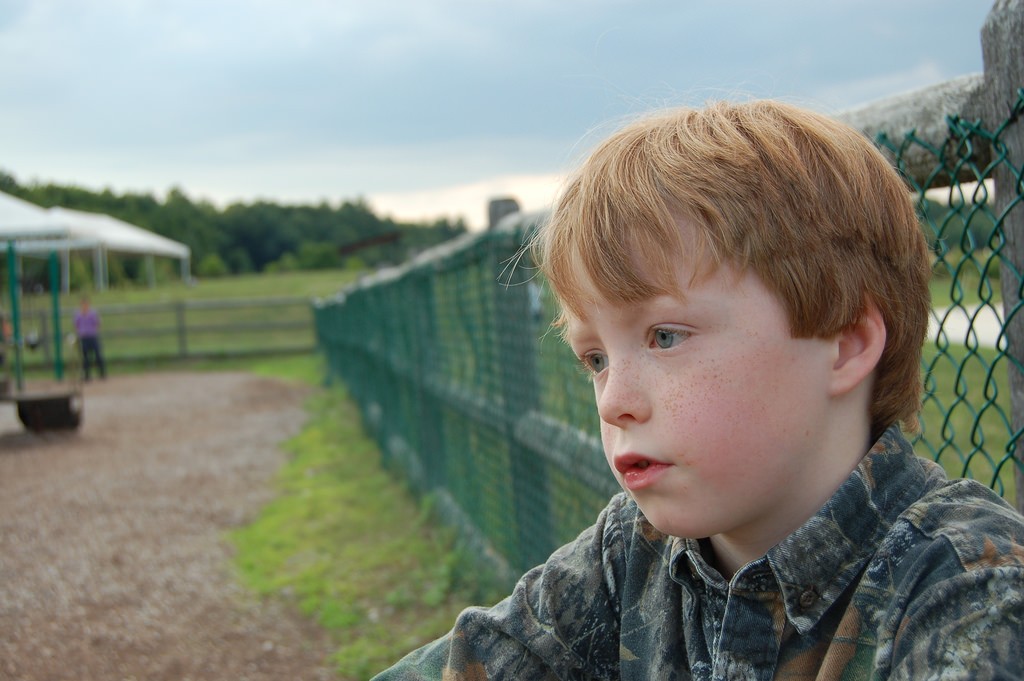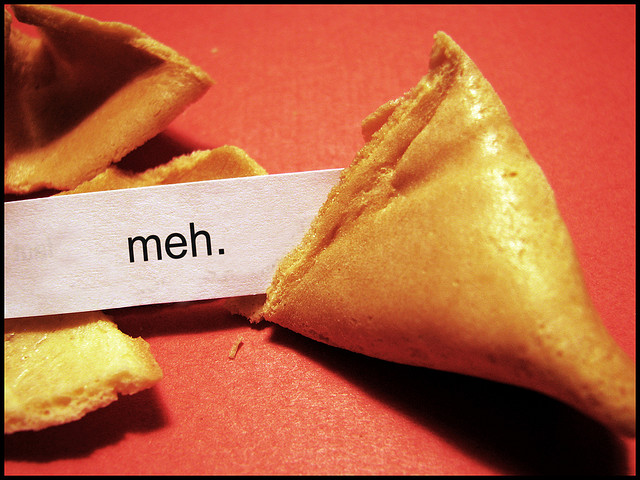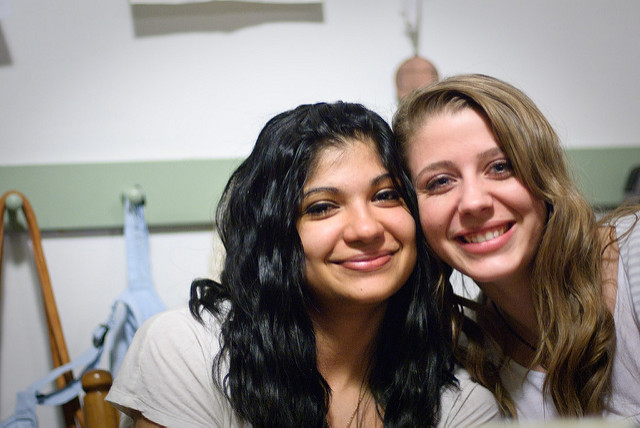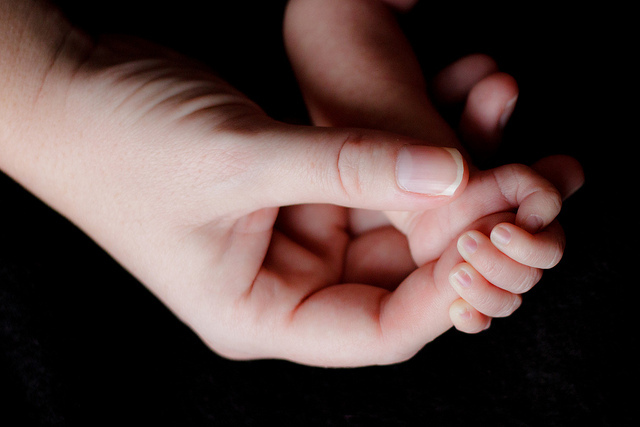How do I help my son to stop hitting others?
 Note: This question has been adapted from a different venue and used here with permission.
Note: This question has been adapted from a different venue and used here with permission.
Dear Sisters of Katie Luther,
I have a 9 year old that wont stop hitting people!
He doesn’t do it all the time. He only does it when people won’t stop what they are doing to him, after he repeatedly asks them to stop. Instead of walking away he hits.
He also feels that when he tells a teachers they don’t do anything.
Dear Sister,
I’m going to start at the end of your question first. A sad truth of life in this sinful world is that there will always be someone trying to provoke another, and getting away with it. The teachers cannot be everywhere at once, or know who did what to whom, or decipher where the fault lies at each interaction with so many children under their care. And even if they do, they, too, are sinful and will not always respond in an appropriate manner.
This will be the same in all of life. Not just school. Not just childhood. There will always be guilty or partially guilty parties who go un-noticed and un-punished. A big part of growing up, an important life skill, is learning to handle difficult situations without the intervention of others. As a parent, the trick is finding the balance or tipping point, the point when it’s necessary to talk to a teacher or whoever is in charge.
Regarding your son’s hitting, it is hard. The experts and teachers, the grandparents, the neighbors and friends, each will likely be more than willing to tell you how best to solve the problem. They will all be right. And they will all be wrong, too. Any variety of solutions might or might not work with one or another child.
Your immediate goal for the specific situation is to help your child to grow in self-control over a particular problem, using whatever sort of punishment and/or reward system that seems to work. There is no one right answer, and the solution will not come over night. That’s the immediate answer. Sadly, it is not really an answer at all.
But there is a bigger picture. And sometimes remembering the bigger picture can help to take the emotion, the pressure, the angst, out of dealing with a particularly difficult habit or problem. And for that, I have a better answer. This answer is learned gradually, and continually throughout the years of parenting, and throughout life.
In this case, as in so many cases, the bigger picture is Sin and Grace, Law and Gospel. How must you as a parent rightly divide Law and Gospel; how can you best show the Sin and remind the sinner of God’s Grace? And so too, as in so many of life’s difficulties, we can apply both the first and second tables of the Law.
Firstly, your son is sinning against both God and his neighbor. He is obviously breaking the Fifth Commandment when he hits his schoolmate. But also, he is not loving God above all things. He is not showing honor to God’s Holy Name. He is not remembering the Sabbath rest God has given him in Jesus. These are all included in how he’s sinning against God.
Probably he knows at least the first part of that, or the obvious part about the Fifth Commandment. The rest will come with continued teaching and training and maturity.
You’re job as a parent is to make sure he knows what he did is a sin against God too, not just against his friend, and to train him to take that sin to God. Help him to confess his sin in prayer and ask for God’s forgiveness. And remind him that God has indeed forgiven him for Jesus’ sake.
And sometimes more challenging than that for a parent, is to treat him with that forgiveness in mind. Our Heavenly Father, in his forgiveness, removes our sin far from us and clothes us in Jesus’ righteousness. We as parents also need to be able forgive our children. And to treat that sin as if it’s gone. That’s hard.
Secondly, there is the sin against the neighbor. This second table of the Law has to do with vocation. Or put another way, it helps us to decide, “How can we best show our thanks to God by serving our neighbor?”
In this case, when your son breaks the Fifth Commandment, he is hurting his neighbor. He is not loving his neighbor as he loves himself. He is not turning the other cheek.
Your job with this second table of the Law is similar to that in the first. You encourage your child to apologize and to ask forgiveness of the ones he has sinned against.
Does that sound simple?
In a sinful world, a simple answer is often not really simple. We want to raise good kids. And we know we have to raise them in the nurture and admonition of the Lord. But the good part, the purpose behind it, the vocation toward our neighbor, that part is often lost in the wish for the good, well-behaved child we hold as an ideal.
The confessions, the apologies, the forgiveness, that part is easy. Or at least the words for them are easy. The truth of these words can take longer to settle into the heart.
But longer still sometimes is the repetition and training for behavior. The training is a lifelong thing. Your son will continue to sin. And sometimes, perhaps often, those sins will be public. Hurtful. Frustrating. Embarrassing. Even as an adult, in outward matters of self-control, your son will still sin.
Just as his parents sin.
And just as we all sin.
And so the cycle continues. As a parent, you must train for good behavior. The good behavior will not help your son spiritually; this good behavior warrants nothing from God. This training is vocational. Love for his neighbor is a response of thanksgiving for the great gift he has been given in Jesus.
The second table of the Law for Christians is God’s rubric for service to our neighbor. Because we are saved through the working of the Holy Spirit in Word and Sacrament, we are God’s children. For God’s children, the Law shows how God would like His children to treat others. Out of thanks for our salvation, we continually try to do this.
But we continually fail. One of the challenges of parenthood is to train the vocation while still remembering the bigger picture. It’s so easy to get so caught up in the training, in the good or bad behavior, that we forget or improperly address the bigger picture. That sinful behavior, the stuff everyone else sees, the pressures from our own heart and from outside to raise good kids, this can distract from the more basic eternal troubles.
The soul troubles.
Sin and Grace. Law and Gospel. Repentance and forgiveness of sins.
For Jesus’ sake. Amen.
Photo credit to Tim Pierce. Some rights reserved.




One Comment
helen
What are the “others” doing to the 9 year old?
Bullies don’t let you “just walk away”.
The first two paragraphs were appropriate.
Most of the rest was someone preaching who shouldn’t be.